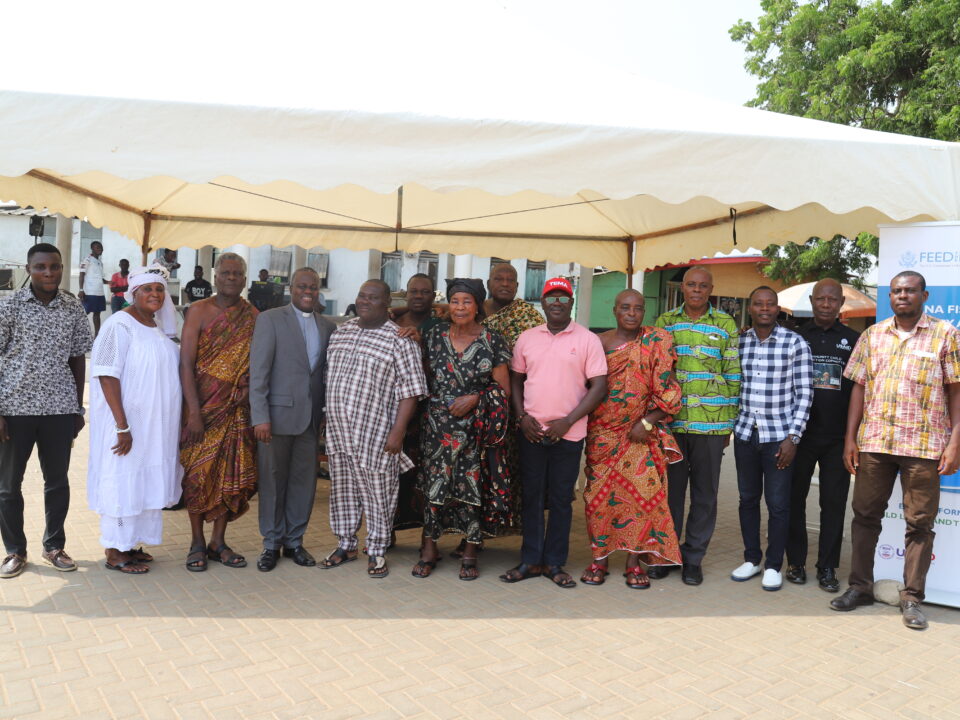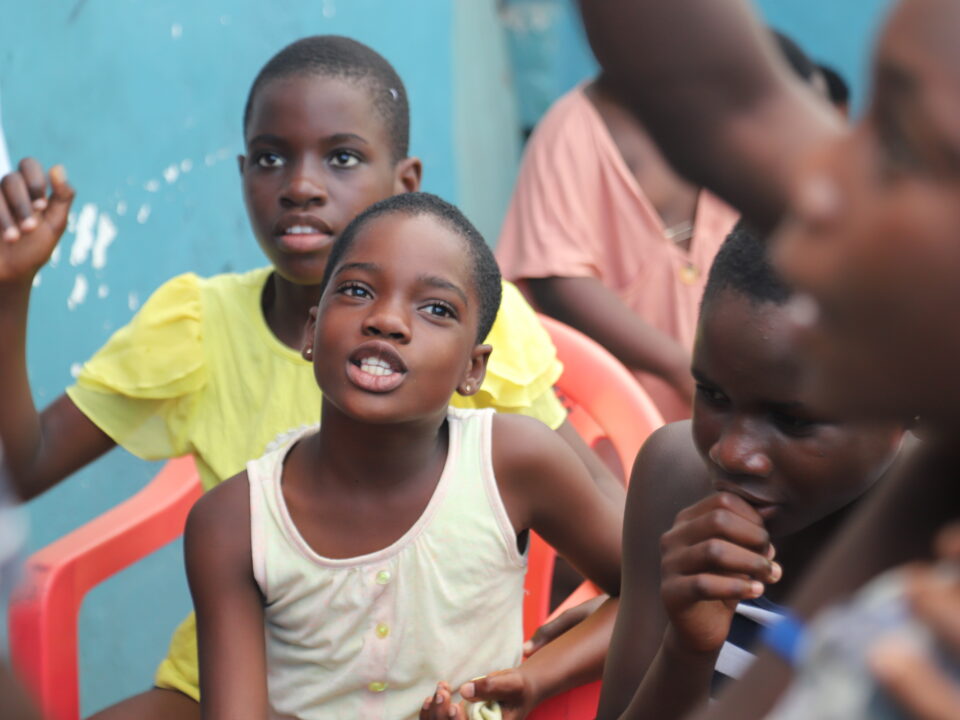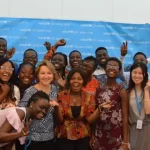
UNICEF Ghana holds Public Advocacy Communications Strategy Meeting for Young Advocates
August 13, 2018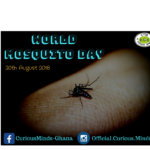
PERSPECTIVES ON WORLD MOSQUITO DAY
August 20, 2018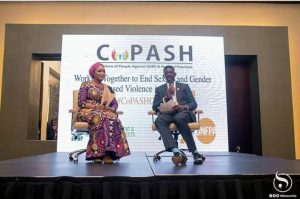
Image credit: SBawumia
“If we desire a society of peace, then we cannot achieve such a society through violence. If we desire a society without discrimination, then we must not discriminate against anyone in the process of building this society. If we desire a society that is democratic, then democracy must become a means as well as an end”. (Bayard Rustin).
Earlier in Accra this week, the Second Lady of the Republic of Ghana H.E Mrs. Samira Bawumia in collaboration with the United Nations Population Fund (UNFPA) launched the Coalition of People against Sexual and Gender Based Violence and Harmful Practices in Ghana (CoPASH). The event was attended by representatives from the United Nations Agencies, State Institutions, Religious institutions and Civil Society Organizations as well as Health and Security personnel trooping in to support the worthy course.
The Country director, Niyi Ojuolape at the Launch of the event reiterated that, “SGBV is becoming a norm, that no one sees anything wrong with it” even though it is a great violation of human right. In our Ghanaian Society, we can all attest to the fact that most males have an upper hand over that of a female in various ways due to our kind of culture. “The man is always the head” is what they say. That is why we will have 27% of women who have been sexually assaulted by their male counterparts, with 1 in 3 women being fondled against their own will in Ghana.
2 out of 10 Ghanaian women have sex against their own will, and this calls for an action because it has got to do with humans not objects. In most of our communities, we find most women marginalized because they cannot speak when a man speaks and that is undemocratic yet we live in a democratic Ghana. How is this possible?
The act of Sexual and Gender Based violence (SGBV) is now acceptable by a section of our society because, they see no possibility of scraping it. However, the identification of a problem, they say, is part of the solution so there is a way out.
The UN Resident Coordinator, Ms. Christine Evans-klock in an address stated that, there should be access to justice for all and that has led the UN agencies into working with partners to end SGBV for good. In her concluding statements she says, “Look forward to seeing a difference”.
A video showed at the Launch indicates that, gender based violence comes in different forms which includes interpersonal violence. This mostly has to do with Intimate partner violence which is common in some parts of our society.
There is also the Physical Violence as well as Sexual violence which has a higher tendency of causing emotional trauma to the victim. Sexual violence victims are mostly intimidated because of their ages and sometimes their social status. Marital rape is not excluded from sexual violence.
The Deputy Minister for Gender, Children and Social Protection, Gifty Twum- Ampofo in a speech stated that discrimination against women remains a challenge. She had added that, most Ghanaian women are held back by violence and do not attain their full potential. This she says, goes a long way to affect our economy apart from the moral and social aspect of violence.
Statistics have shown that 7% of women have been forced to touch the private parts of men. Niyi Ojuolape mentioned that, child marriage is one of the factors that have also allowed SGBV due to the fact that, young girls in marriages are being forced to do lots of things against their will when they end up with men who are far older than themselves.
An Accra based petty trader, Mrs. Asare with four children shared her story on how she was abused in her marriage before an organization came up to rescue her. In her words, she has been married for 17 years and there was often arguments with her partner which sprouted into conflict in her home. “I have been beaten three times in the marriage. However, I was helped to report the case”. She added.
Meanwhile in certain cultures in our country, the woman is expected to be submissive at all times and not complain when she is being hurt. In cases where some cultures do not allow women to visit a health facility during antenatal. Where is the right to health of the individual? Niyi Ojuolape who was coordinating the programme mentioned that, adolescents should be focused on and be given quality education so the menace of SBGV and harmful practices like Female Genital Mutilation (FGM) would be eradicated. According to him there are some cultural practices that need to be done away with based on the fact that, women between the ages of 10 and 18 are likely to suffer SGBV and over 800 women globally experience violence from husbands. These women need psychological support and effective legal systems to support them.
SOME CHALLENGES IN ADDRESSING THE MENACE
A number of challenges are encountered in a bid to address the danger of SGBV and Harmful Practices. Ranging from inadequate shelter to accommodate victims, ineffectiveness of laws and policies that do not condemn the act when it occurs but rather seen as a norm.
In this regard, Civil Society Organisations (CSO’s) and health practitioners have to raise more awareness about the treacherous effects of the issues on the individual and the nation. In addition, the laws and policies that protect the rights of individuals need to be strengthened to ensure that no perpetrator of violence is condoned but dealt with to deter others. The words of Hajia Alima Mahama during the launch was that, “Young people should not take responsibility of adults’ sexual indiscipline” but should report sexual violence cases to the appropriate authorities. She added that, even though, women are the most victims of violence, there is the need to involve men to support the elimination of SGBV.
Former First Lady of the Republic of Ghana, Nana Konadu Agyemang Rawlings was of the view that, the media is violating the freedom of press by showing all forms of discriminatory and violent movies which have not helped society in any way. According to her freedom of the press should not be media irresponsibility.
THE ONE STOP CENTRE
According to the Chief Superintendent Owusuaa Kyeremeh, National Coordinator- DOVVSU, 400o cases of violence have been reported in Accra only with other alarming rates in the other regions.
In an attempt to protect victims of violence, the one-stop-centre is an initiative used by another country which is being adopted here in Ghana as well. This centre will help to handle the cases of inadequate offices to cater for violence victims and ensure confidentiality. The centre she says will contain legal systems and facilities that will handle all the issues to prevent the victims from moving from one facility to the other for treatment. The structure for the centre she says was started 1o years ago, therefore implores the government to aid in the completion of the project.
In an interview with some participants, Abigail Annor who is a student from the Ghana Institute of Journalism described the launch as a laudable initiative which will help create more awareness of the existence of SGBV to enable victims of violence to report their cases. She pledged to be an advocate against SGBV and help report cases of violence to the appropriate institutions like the police station and DOVVSU. Frank Boateng who is a sales officer at a Bank expressed his delight to be a part of the Coalition and pledged to “preach” against SGBV so it is no more acceptable in society. The culture of silence must be smashed to enable victims of violence come out of their shells to report perpetrators of the act or else it remains with us.
The human rights of individuals, especially women, have got to be respected to enhance a dignified society devoid of violence. “Not all Silence is Golden”, LET’S END SGBV and HARMFUL PRACTICES FOR GOOD!
Mavis Naa Korley Aryee
Member, Intern CYIB-Curious Minds

